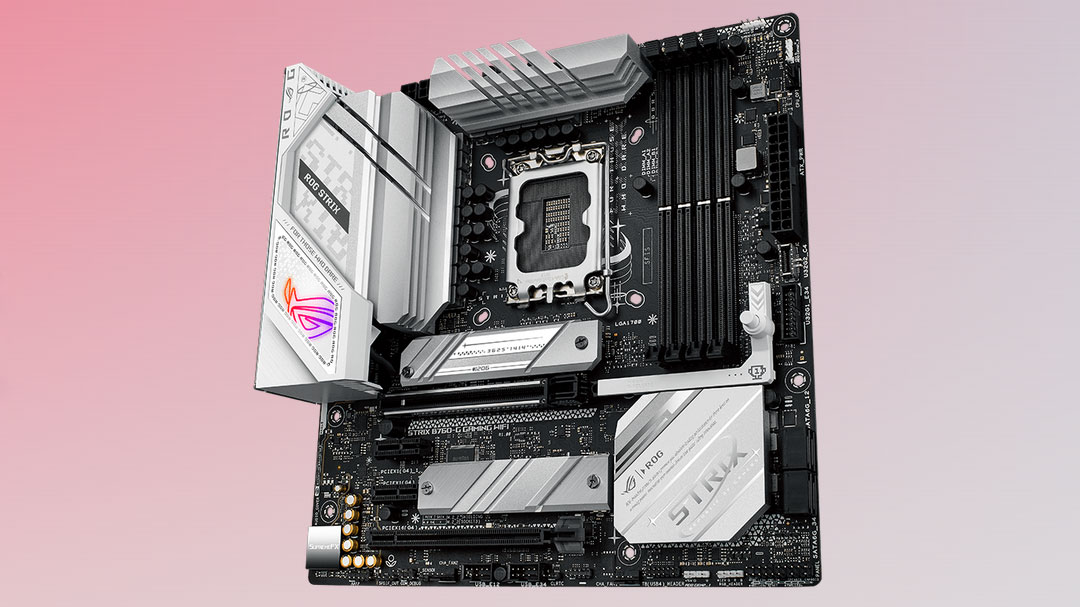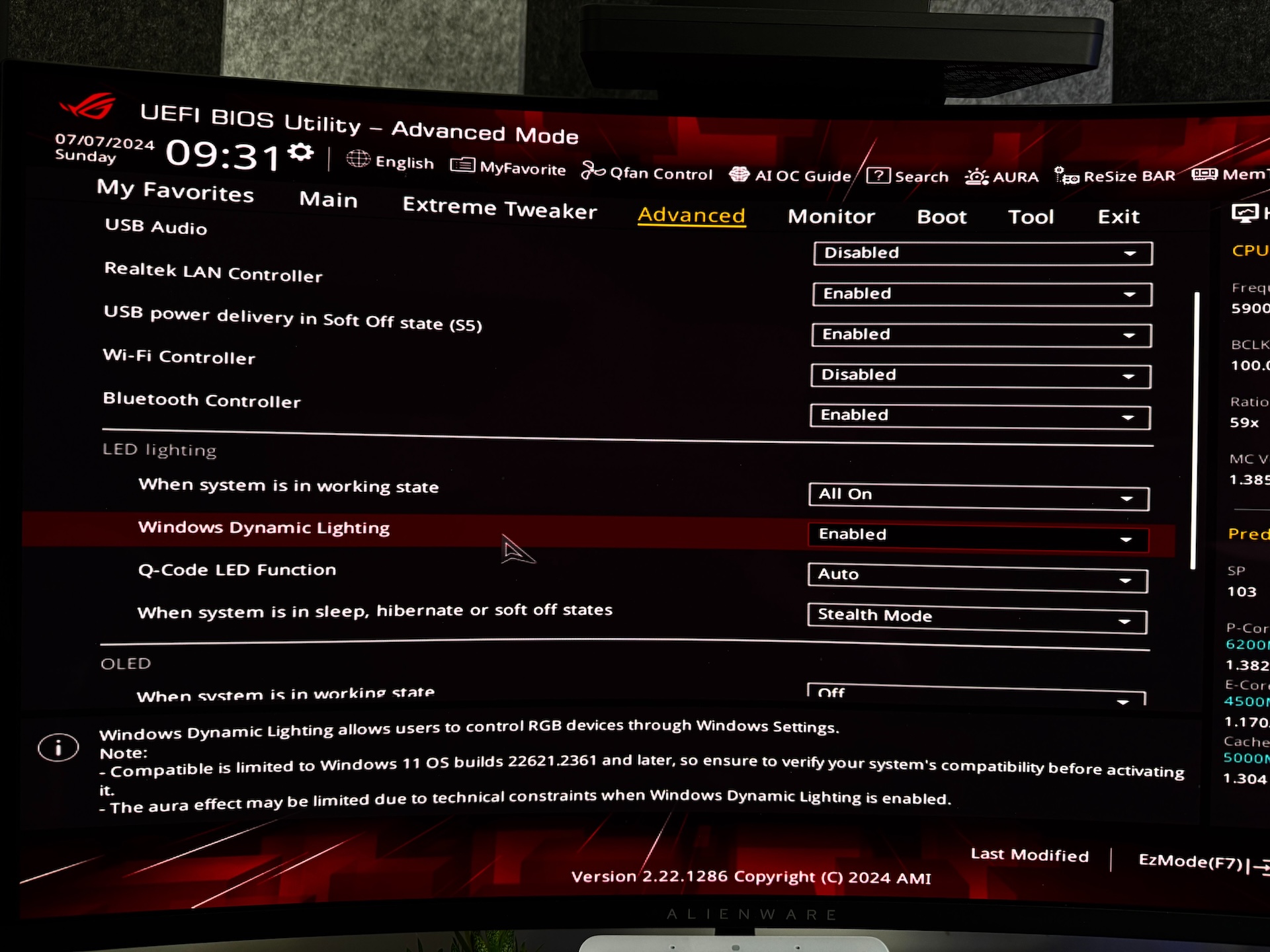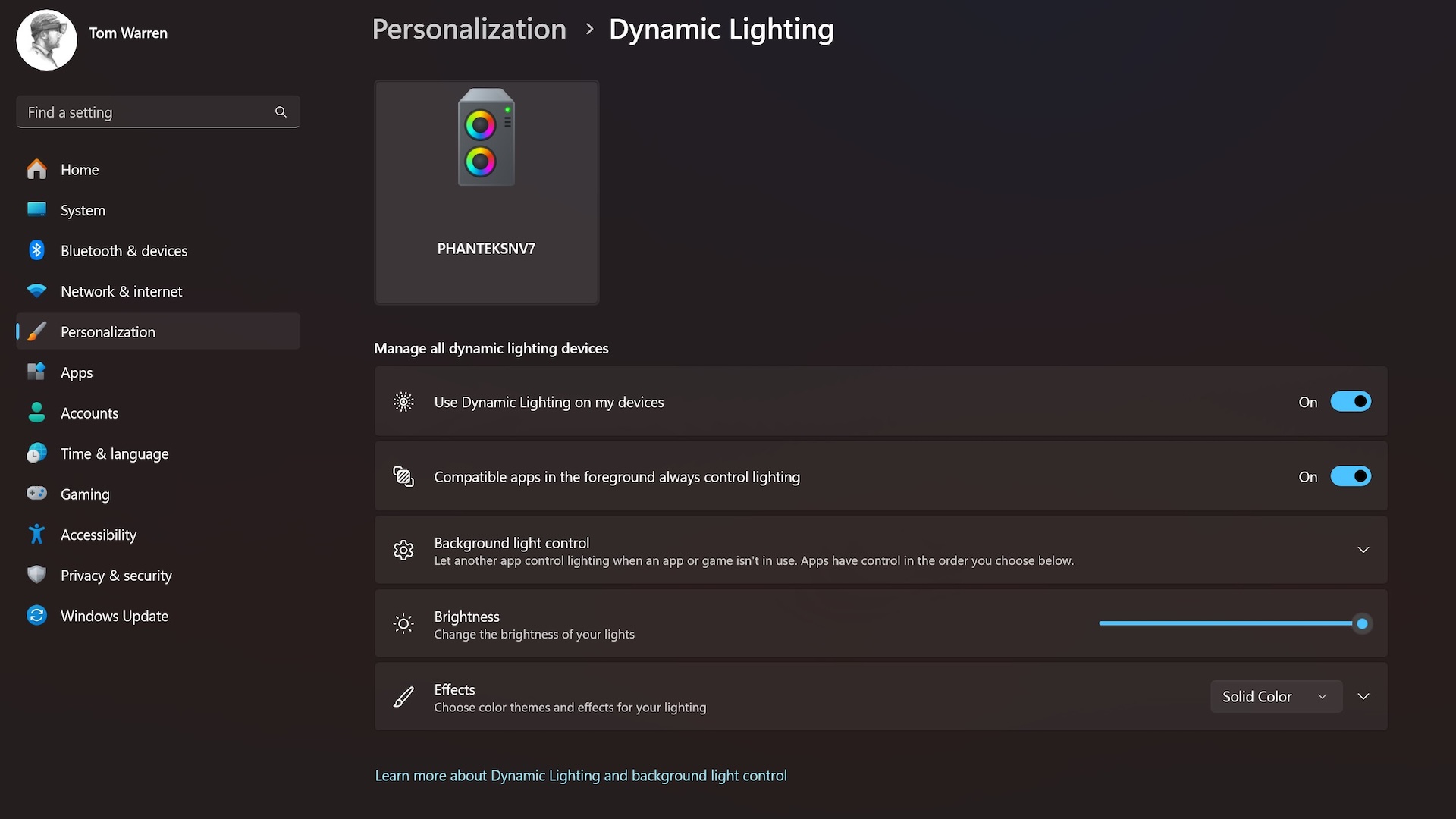
Motherboard maker Asus has a BIOS update for its newest AMD and Intel boards in beta testing that will make it easier for you to personalize the RGB lighting inside your case. The upcoming BIOS update enables Microsoft’s Dynamic Lighting feature in Windows 11, allowing direct control over the motherboard lighting.
Tom Warren, senior editor at The Verge, made the discovery. Testing the latest beta BIOS update, he found that the latest Asus Z970 boards turn on support for Dynamic Lighting in Windows 11. A new option in his motherboard’s UEFI BIOS utility allows the user to enable or disable Dynamic Lighting.
ASUS' latest beta BIOS updates for its newest AMD and Intel boards enables Microsoft's Dynamic Lighting feature in Windows 11, so you can control the motherboard lighting directly in Windows pic.twitter.com/e34Vk1ExkHJuly 7, 2024
Microsoft’s Dynamic Lighting hopes to homogenize control over lighting devices like those found on motherboards, inside PC cases, and in CPU and case fans. This allows consumers to control their device lighting straight from Windows, without using a third-party app.
The implementation also allows you to synchronize the lighting for devices by different brands. For example, you could set the brightness or color change of the RGB lighting for your Asus motherboard, and your other-brand PC case fans at the same time, using just one control.


According to Microsoft, several other key partners have joined its Dynamic Lighting effort. These include Acer; HP’s Omen, Victus, and HyperX products; Logitech; Razer; SteelSeries; and Twinkly. You’ll find compatible lighting in computer cases and motherboards, but also in keyboards, mice, game controllers, and more. We have also previously reported on ASRock motherboards adopting this generic Windows 11 standard.
Warren’s post to X was met with mixed reactions. While some commenters praised the news, some even saying it was “about time,” not everyone is a fan. Some suggest the most aesthetically pleasing computers lack any RGB lighting at all. Others say Asus should offer support for the open-source OpenRGB standard instead.
Warren notes the latest BIOS updates also include a new microcode fix for 13th and 14th Gen Intel CPUs. This microcode enforces Intel’s default power and voltage settings to help address instability issues found in those CPUs under high loads. Intel has stated this isn’t the root cause of the crashing issues, but it is a contributing factor.







